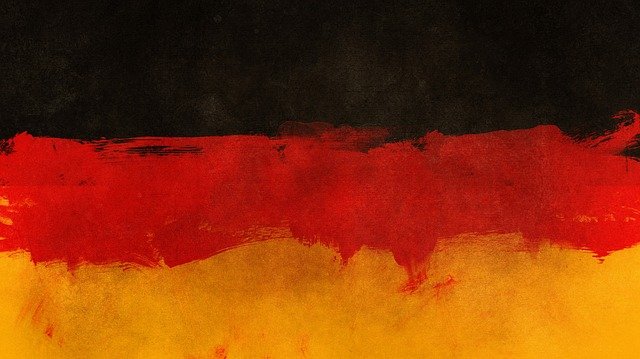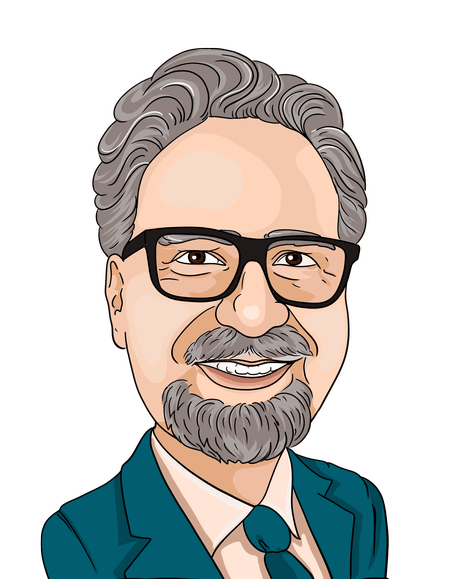

This article is only available to Macro Hive subscribers. Sign-up to receive world-class macro analysis with a daily curated newsletter, podcast, original content from award-winning researchers, cross market strategy, equity insights, trade ideas, crypto flow frameworks, academic paper summaries, explanation and analysis of market-moving events, community investor chat room, and more.
Thorsten looks back from an imaginary future.
A Problem With the Kettle…
It all started ten years ago one early morning in January 2024. I had switched on my kettle, expecting a nice hot cup of tea, only to be greeted with a gentle pfff followed by utter silence and darkness.
As this had happened before when it was time to upgrade to a newer tea facilitation device, I fell into standard troubleshooting mode. I unplugged the now-deceased, old, trusted kettle, and I went off to attend to the fuse box, intending to start boiling water the old-fashioned way on the stove.
So I thought.
The fuse box seemed to be in perfect working order. I casually glanced out of the kitchen window to confirm my suspicion that the neighbors were sitting in the dark as well, surely affected by the same local power shortage that inconvenienced me this morning. Whenever something like this happens, it is usually because some digger broke a cable, and after a few hours, everything returns to normal.
Well, as you all know, this time it was not just local Frankfurt suburbia that had to suffer the indignity of being thrown back into the pre-industrial era for a couple of hours. It was also the whole of France, Switzerland, Holland, Belgium, Spain, and of course, the UK for over a month. Germany, as the leader in its valiant attempt to become the world schoolmaster in its energy transition to a greener grid, kept the lights out for over two months.
Apocalypse Now?
For those younger readers conceived during those cold months of early 2024, you would not have been subjected as we were to the regular doomsayer’s prediction of an impending zombie apocalypse if something like this should ever happen. So it might less surprising to you than it was to us older folks that human beings can show a surprising capacity for empathy, team spirit, and generosity in times of shared adversity.
Communities came together, sharing resources like food, gas cartridges, water, and medicine. Meanwhile, hospitals and homes for the elderly were overrun by volunteers. Surprisingly, the streets were safer than ever, partly due to the great work of our large Turkish population, who would let nobody ruin the country they had chosen to make a better life for their families and themselves within.
Of course, I am not saying we were all sitting around a campfire, strumming a six-string, and singing ‘Kumbaya.’ It was a tough two months. Then came an even tougher period restarting and reopening the German economy.
Supply chains had broken down, industrial plants needed to be fixed and reopened, cultural life had stopped, and the public sector, led by our political class, had demonstrated that it was completely overwhelmed by a catastrophe of this magnitude.
New Lights, New leaders
When the lights slowly came on again, city by city, region by region, in an agonizingly slow rollout, the republic was not the same as it had been before our energy transition. Of course, the politicians tried to claim that they had fixed the problem that ‘just seemed to happen.’ But this time, the people did not buy into the quickly spun narrative of a redistribution orgy to relieve the hardship caused by the consequences of policies they were responsible for.
The first thing we did was gather on the streets to exercise our democratic right to protest and call for elections. Even the peaceful revolution of 1989 that wiped the DDR off the map of history was a family picnic compared to the masses that took to the streets to show their discontent.
In record time, the German president dissolved parliament and opened the way for elections as the situation became untenable. Citizens refused to pay taxes, follow useless nonsensical pre-blackout regulations, and were less and less inclined to accept the same old solutions offered by the established political system. Their old, unworkable playbook just could not cut it.
A plethora of new parties emerged, unsurprisingly. They were mostly libertarian and conservative, as the populace had had enough of seeing their wealth and freedom drained by an overregulating elite.
Among these new parties, two finally formed a coalition. The first was the ALI Party, which is a German acronym for ‘Alte Liberale’ or ‘Old Liberals’ in the true sense of the word, standing for civil rights, less state intervention, reduced regulation, and lower taxes. The other was the conservative German–Turkish Allegiance. Their main emphasis was to retain Germany in the league of civilized modern states, which many Turkish citizens over the decades had chosen as their new home, and learned to love.
Overhauling the System
The tax system was radically modernized. No longer were 60% of all global tax laws written and introduced in Germany. Everybody, no matter how little they earned, had to pay drastically reduced flat taxes on their income to finance the state.
The educational effect of this action was immeasurable. No longer would there be just takers in the electorate; everyone felt the sting of the state. Inheritance taxes were scrapped, and double taxation was eliminated. The overbearing benefit system was cut to the bone, and with German taxpayers now paying less than 80% of their former income taxes to the state, charities sprouted like mushrooms and stepped in whenever help was needed.
Every new law on the books automatically expired after four years and had to be reconfirmed by a two-thirds majority in parliament. Taking a cue from Switzerland, the people were given the right to initiate legislation whenever they saw fit and had the numbers.
Bureaucracy was greatly diminished, and new laws were introduced so that public officials could be prosecuted if they evidently, proven by a court of law, wasted taxpayers’ money.
Opening the Borders
With these steps in place, Germany could open its borders and welcome everybody who wanted to make a better living. This filled its gap of skilled workers, which it so desperately needed because of its aging population. Like the US once welcomed ‘the tired and poor, the huddled masses yearning to breathe free,’ the new Germany had learned the lessons from history.
However, the law of unintended consequences even led to an increase in birth rates. Why? Having children was no longer as much of a financial strain as it was before the great reform, strengthening the new economy further.
Germany Unshackled
With a strong legal system, an educated workforce, reduced bureaucracy, and a liberal mindset, Germany became the great attractor for productivity and capital.
The last-ditch attempt by the bureaucrats of the European Union to slow this development failed on a grand scale. Every new regulatory imposition was put to a public vote and failed effortlessly.
As the success of Germany’s new policies became undeniable, the existing establishment governments were voted out one by one, and the real spirit of a Europe without borders and tariffs, as originally intended, started taking shape again. The success story was ultimately confirmed when the UK reapplied for EU Membership under Prime Minister Nigel Farage.
Within a short ten years, caused by my kettle cascading the European electric grid into default, Germany had thrown off the shackles of collective policies on the brink of socialism and became an inspired nation of hope – something you are probably only allowed to fantasize about around Christmas time, when Bilal asks you to come up with a ‘Grey Swan’.
Merry Christmas to all of you.
.
